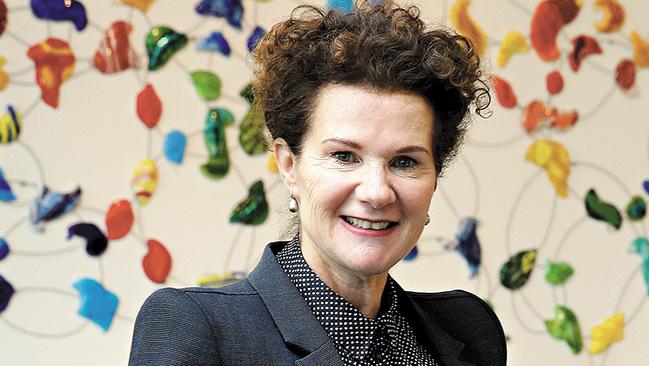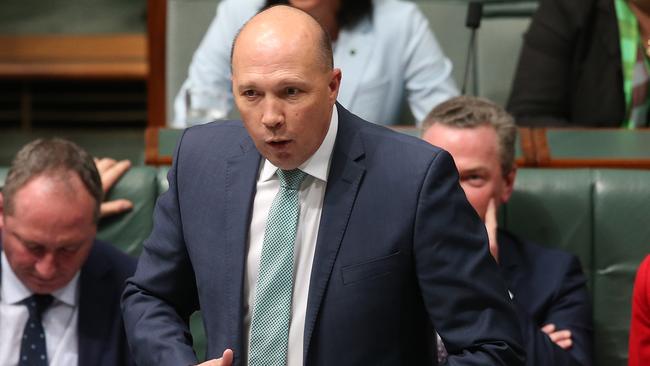Business ‘has stake in social issues’
After Peter Dutton’s gay marriage swipe at Qantas, RBA chiefs say relations between business and government are at a low.

Two Reserve Bank of Australia board members have lamented the loss of trust between business and government and questioned why business leaders are often “slammed down’’ for expressing views on social issues.
RBA director Carol Schwartz, who is also a director of property giant Stockland, said business was a key stakeholder in the community and had a right to be heard on social issues such as same-sex marriage.
“When business wants to get involved in commenting on social issues — take marriage equality — we are sort of slammed down. That we are told ‘get back in your box’ and ‘what is your role in commenting on what is going on in the social environment?’ Which is a little bizarre, I think,’’ she said.
“We are all players in a community, we all have our voice and we should all be able to speak. I think for government to close down business on making comments about what is happening in the broader society or for business to try to close down conversations that others are having, that is not the way you should go.”
Immigration Minister Peter Dutton warned ASX-listed companies to stay out of the marriage equality debate and “stick to their knitting” after Qantas chief executive Alan Joyce campaigned strongly on the issue.

At the airline’s annual general meeting yesterday, Qantas chairman Leigh Clifford defended the flagship carrier’s support for the same-sex marriage campaign, saying “we have never directed others what to think”. He said Qantas had “always stood up for equality and a fair go”.
RBA director Ian Harper described the low ebb in relations between business and government as a “dangerous place”.
“You rebuild that by governments saying to business: ‘We are not going to tell you how to run your business. We are going to create the environment where you by running yourself, it has the greatest chance of producing dividends for the whole community.’
“But for each party to look at the other and say ‘I don’t want to have anything to do with you’, that is a bad place to be.”
Former Reserve Bank governor Glenn Stevens last month questioned the “pigeonholing’’ of big business in the debate on economic reform, saying business contributions too often had been viewed as simply “self-serving’’.
But Mr Harper said following some recent scandals, business had a responsibility to take a more whole-of-community response to its affairs, which would lead to more ethical behaviour.
“Some judge said in Enron, ‘Didn’t anyone ever stop to ask if this was wrong?’ And one might level the same question at a few other current boards,” he said.
“If you don’t bring your whole person to the role — the board table or the executive — then that is going to get switched off. Yet the very same person can go to some community exercise where their whole person is involved.
”There is strong pressure — from whether it is the stockmarket, competition or whatever — which makes people think ‘I can’t afford to think about that’. Then the corporate world I think realises that that is a big mistake, a mistake because it leads you down the path of unethical behaviour.’’
But he said more corporations were “turning around” on the issues of governance and ethics. “That process is beginning to work through, especially because of the younger generation. They are all about authenticity.’’
Additional reporting: Annabel Hepworth




To join the conversation, please log in. Don't have an account? Register
Join the conversation, you are commenting as Logout